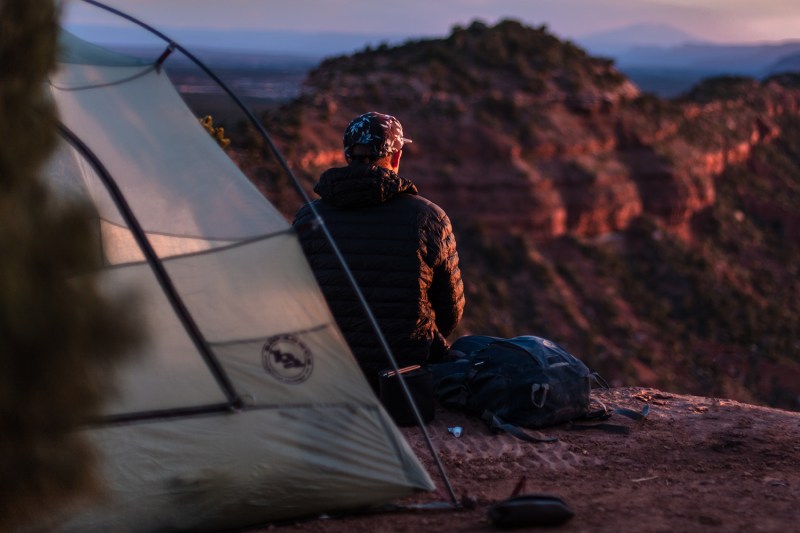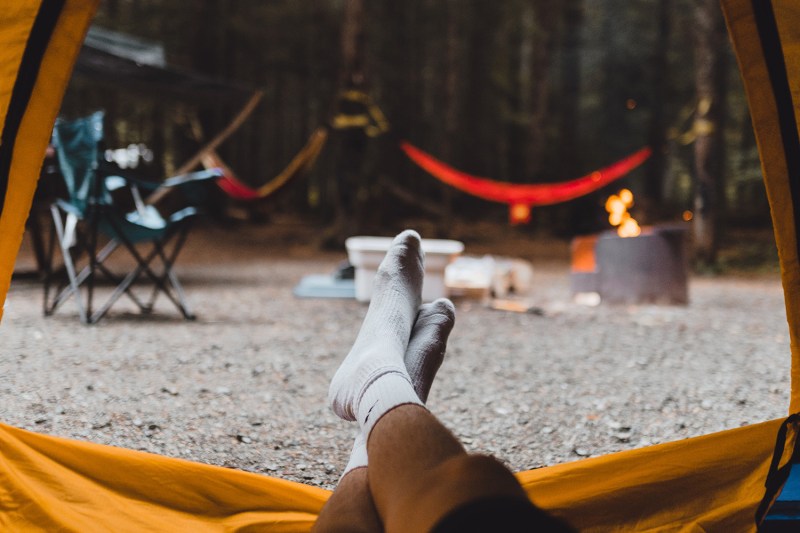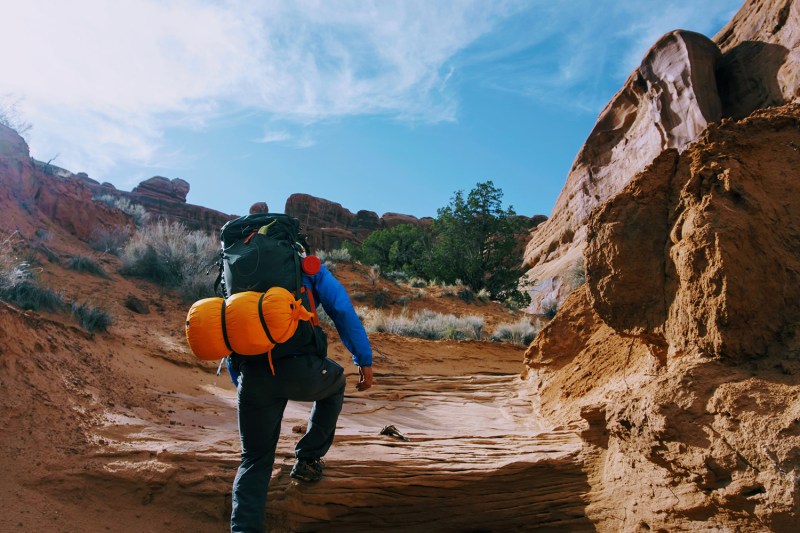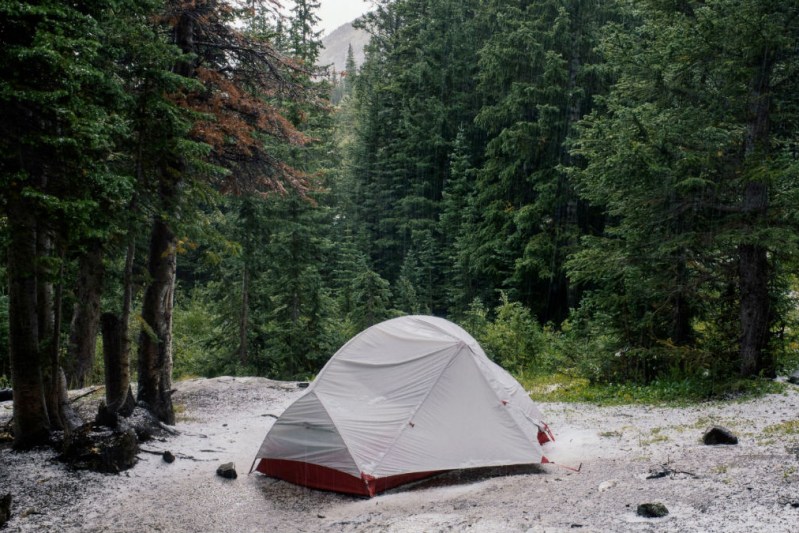One of the cruelest twists of this whole public health crisis is that it happened just as winter was winding down. I don’t know about you, but I’d have been far less averse to sheltering indoors during, say, late October until the end of December, the fussy weather months before nature rolls out the powder carpet and paints the unclouded skies with the aurora borealis. But for the past six weeks, spring has been flirting with summer, the lake is sending up a crazy-making fresh breeze, and all I can think about is when I’ll be allowed to outside.
Technically, I live outside — to be specific, on 10 acres in Michigan’s remote Keweenaw Peninsula. So it has to be said that lockdown has been a lot less intense for me than for many others. My family and I haven’t been confined to the walls of a house or apartment. When we needed some space or fresh air, we just had to step outside. We could wave to our neighbors doing the same, shout greetings, even share a public park or beach with nary a worry of breathing in someone else’s aerosol droplets.

So when I say I want to get outside, the “outside” I mean is somewhere new. As much as I love the birch and tamarack trees that surround my home, I want to look at different trees, different mountains on the horizon, a different stretch of coastline. I want an adventure, the kind that sparks inspiration and fosters hope, courage, and gumption — things we’re all going to badly need as lockdown slowly lifts.
With air travel remaining largely prohibited, taking advantage of the rock-bottom airline fares is out of the question, at least by my calculus. And as different states (and even different municipalities) negotiate the terms of lifting lockdown, I’m not really ready for an interstate road trip. But that’s all fine with me. Spring is flirting with summer, and that means one thing for me and my crew: a camping trip.
“I think this whole pandemic has been, for many people, an opportunity to reassess how they spend their time … People have already been questioning ‘Am I on the right path?’”
If you’re feeling the same as me, you’re probably doing some complicated calculus of the risks of travel against the desperation to get out of dodge. Prudence forbids boarding a flight or venturing into a major city, and while road trips offer more isolation, there’s evidence that way stations for common use (such as gas stations and public bathrooms) are hot spots for the virus’ spread. Outdoor areas have shown to pose much less risk, and now that the days are growing longer and the weather more inviting, even indoorsy types are thinking about a wilderness vacation.
For all those reasons, we opine that camping is poised for a major blow-up in the next several weeks. To confirm our suspicions, we spoke with Dan Yates of Pitchup. Yates grew up on a campground in Devon, one of England’s top outdoor destinations, and after brief stints in the travel industry, took the methods he learned there to build a platform where people can easily design their dream

“If you look at all the types of travel accommodation,” says Yates, “you have to conclude that outdoor camping is the least impacted by coronavirus. It’s out in the open air, you’re not exposed to ventilation systems, and it’s inherently socially distanced — in many cases, you don’t need to see another soul during your whole trip. You’d be hard-pressed to find a more suitable travel experience for pandemic conditions.”
The proliferation of DIY projects during quarantine will also be a contributing factor, Yates says. Domestic skills like cooking, crafting, and gardening offer a natural transition into know-how for outdoor adventure. “Everyone’s well set up for maintaining a campsite now.”
But along with these practical considerations, camping also offers a more existential panacea to the experience we’ve recently lived through.
“Unlike a self-contained resort, at a campground you tend to interact with the local economy constantly: buying supplies, going to bars and restaurants, etc. Also, the whole environmental footprint of the business is minimal.”
“I think this whole pandemic has been, for many people, an opportunity to reassess how they spend their time,” Yates says. “People have already been questioning ‘Am I on the right path?’” After having so much time to consider our busy, consumption-driven ways of life, camping offers a natural avenue to put newly hatched social and environmental values into practice.
“Unlike a self-contained resort, at a campground you tend to interact with the local economy constantly: buying supplies, going to bars and restaurants, etc. Also, the whole environmental footprint of the business is minimal. The materials used in construction of cabins and facility buildings tend to be locally produced and low-impact. And the method of travel has a lower environmental impact, as well — this type of vacation generates about 90% less CO2 during the travel portion of the vacation, compared to flying. It represents a more wholesome, authentic way to live life.”
According to Yates’ diagnostics, even those who have unsavory impressions of camping are motivated to give it another try and discovering new possibilities in the process. “For two-thirds of the U.S. population and 50% of the population in the United Kingdom,
Ready to get out in the wild? Yates has a few tips on how to safely enjoy camping in a post-quarantine environment.
Do Your Research
All open campgrounds must continue to comply with any state health and safety guidelines. But depending on your situation, it’s a good idea to ensure that the campground you plan to visit is prepared for the level of social isolation you need to feel safe. When you call to reserve (and make sure it’s even open), ask for details about how they’ve adapted the campground for social distancing. Specific things to ask about include how the shower and toilet facilities have been modified, how check-in is being handled (ideally online), are they providing sprays and wipes, etc.

Be prepared that your favorite campground might not be available, whether it’s just not open or its safety measures aren’t up to your standard. Seize the opportunity for adventure and try out a new campground. If you don’t have a backup favorite or you’re not sure what’s around you, Pitchup makes it super easy to find an array of campgrounds that have the exact location, amenities, and availability you’re looking for. To help campers in our post-lockdown world, Yates and his team have published each campground’s updated safety guidelines. “This industry is going a very long way, even with the moving target of the science evolving, to meet those requirements to keep people safe.”
That said, it’s advisable to bring your own gear, no matter how well prepared your campground might be. Add plenty of sanitizing spray and wipes, disposable gloves and face masks to your camp box, and make sure anyone going with you is on the same page as you for how to avoid cross-contamination.
Take It Easy
As Yates said, the rookie camper quotient is likely to go way up. If you’re new or new-ish to camping or this is your first time going in many years, Yates advises setting the bar low. Steer clear of an extremely remote site with few amenities—book a campground with well-maintained hygiene facilities, a camp store, and a well-marked layout. For that matter, there’s no rule that says you have to camp in a tent. Renting an RV allows you to have even less risk of breaking social distance (pus it gives you your own toilet and shower). It’s even more the case when you book a cabin, yurt, or treehouse.
This is also true for couples where one is…shall we say, a less avid camper than the other. Make sure you’re on the same page about what would be enjoyable and feel safe for both of you.
For ultra experienced campers, be prepared to have your secret off-the-map spot occupied. Odds are good it’s somebody else’s spot too, and with more people out camping than usual, odds are even better that they’ll be planning a visit at the same time as you. If you opt for a campground, be prepared to see a lot of inexperienced campers out there, and be nice to them. “It’s important for [
Keep Your Visits Frequent and Short
This is just good campground economics—if everybody kept their visits to about 2 days, more people would have a chance to enjoy it. This becomes even more important when you consider that most campgrounds will be cutting their capacity by half, to allow for sufficient distance between sites. There are more people out and fewer sites to go around.
That’s one reason to keep your visit short, but another is to give you a chance to move around and experience more environments. Shorter visits will also help accommodate what’s likely to be a hectic schedule on returning to normal life.
Book Your Stay During “Bad” Weather
With reservations already spiking in campgrounds around the country, Yates predicts many camping facilities will be extending their season by a month or two. “The tourism losses are so extraordinary, so many small businesses will not survive the winter unless they have time to recoup the money.” So if you’re a seasoned camper, consider taking advantage of off-season dates, as well as spring and summer’s less glorious days, to plan your trip. You’ll have more of the campground to yourself since many campers will cancel their plans if the forecast calls for clouds or lower temperatures. And given that you’re a veteran, you’re probably already comfortable enjoying the outdoors when other people are staying in.

Give Your Skills a Refresh
Given that it’s springtime, depending on where you live, it’s probably safe to say you haven’t been camping in at least 5 to 6 months. So don’t dive into your outdoor adventure without first reacquainting yourself with your gear. Put the tent up in the backyard or living room, light the camp stove, charge up the solar batteries, check the bear spray levels, etc.
This is extra important if you’ll be visiting a site that’s new to you. The last thing you want is to get somewhere late and end up fumbling around with your gear in the dark. Yates remembers just such a trip: “The journey took 3 times as long as I expected, and it was pitch black when I got there. I did not appreciate having to put up a 6-man tent straight out of the package in the light of the headlights, while all the other campers were getting angry watching me.”
Support the Local Economy
As someone from an outdoor tourist area, where the normal population would swell 10x during the high season, Yates knows how hard small local businesses have been hit by the dearth of visitors. “There’s a saying in Cornwall that if tourism has a bad summer, everyone has a bad winter.” The small communities that surround a campground or national park depend on the seasonal income from campers, so as much as you’re comfortable, make a point of buying your supplies from a local store, ordering takeout from a nearby restaurant, or visiting the area’s attractions.


